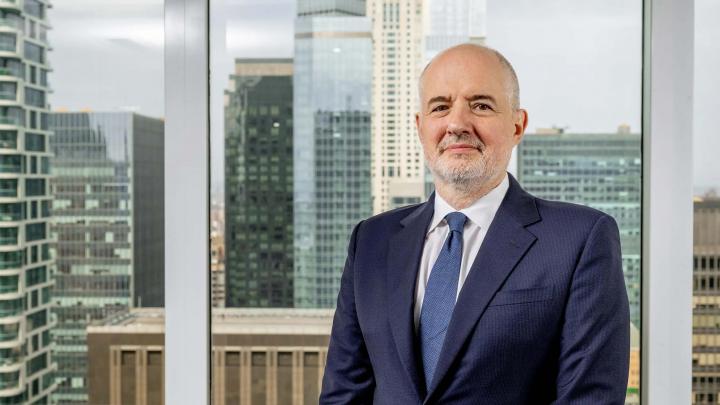
Pimco chief executive Emmanuel Roman warned that the asset-management industry’s obsession with attracting cash risks diluting performance and investor trust.
“My philosophy is simple. I try to do a good job with the money I already manage,” Pimco Chief Executive Emmanuel Roman told his audience at the Future of Asset Management North America summit in New York on Wednesday. He drew a sharp line between Pimco’s model and that of competitors pushing deeper into private-equity and private-credit platforms while opening new retail channels.
“This is not about manufacturing new products,” he said. “It’s about delivering returns for investors. The number one objective should never be to raise money, it should be to generate returns.”
Roman stressed that Pimco, best known for its fixed-income strategies, has no plans to move into private equity, an area he said requires skills the firm doesn’t have. “We’re not omnipotent,” he said. “It’s a hard business. Stay in your lane and know what you know.”
He also warned that managers face a high bar for performance. “American investors can buy a portfolio of investment-grade municipal bonds and make five percent tax-free,” he said. “So you really have a burden of proof when offering products that promise double-digit returns and liquidity. It’s possible, but you’ve got to be careful about capacity, structure, and what makes sense.”
“You read the FT today and there’s a big front-page story about First Brands, who’s involved and the bankruptcy,” he said. “If that’s just an exception and the economy keeps growing for the next two years, credit should do fine. But if we get a recession and more of these accidents, the asset class will have a much tougher time delivering returns.”
First Brands, a U.S. auto-parts supplier that borrowed heavily to fund acquisitions, filed for Chapter 11 bankruptcy in late September after uncovering a 2.3 billion dollar hole tied to double-counted receivables.
Creditors including Jefferies and Raistone are now probing missing collateral and opaque financing structures. According to Roman, the case has become a warning sign for private-credit investors: complex, thinly disclosed lending deals can look stable in good times but unravel fast when growth slows.
A slowdown wouldn’t trouble Pimco. “We would benefit from a recession,” he told the audience. “We have plenty of dry powder, and there are many assets we’d like to buy that are too tight right now. If spreads widen, they’ll suddenly look attractive, and those who haven’t managed liquidity carefully will be forced to sell.”